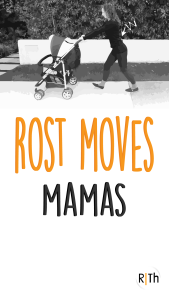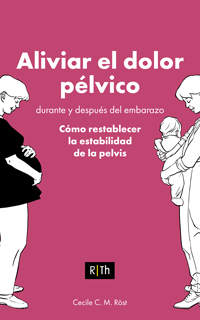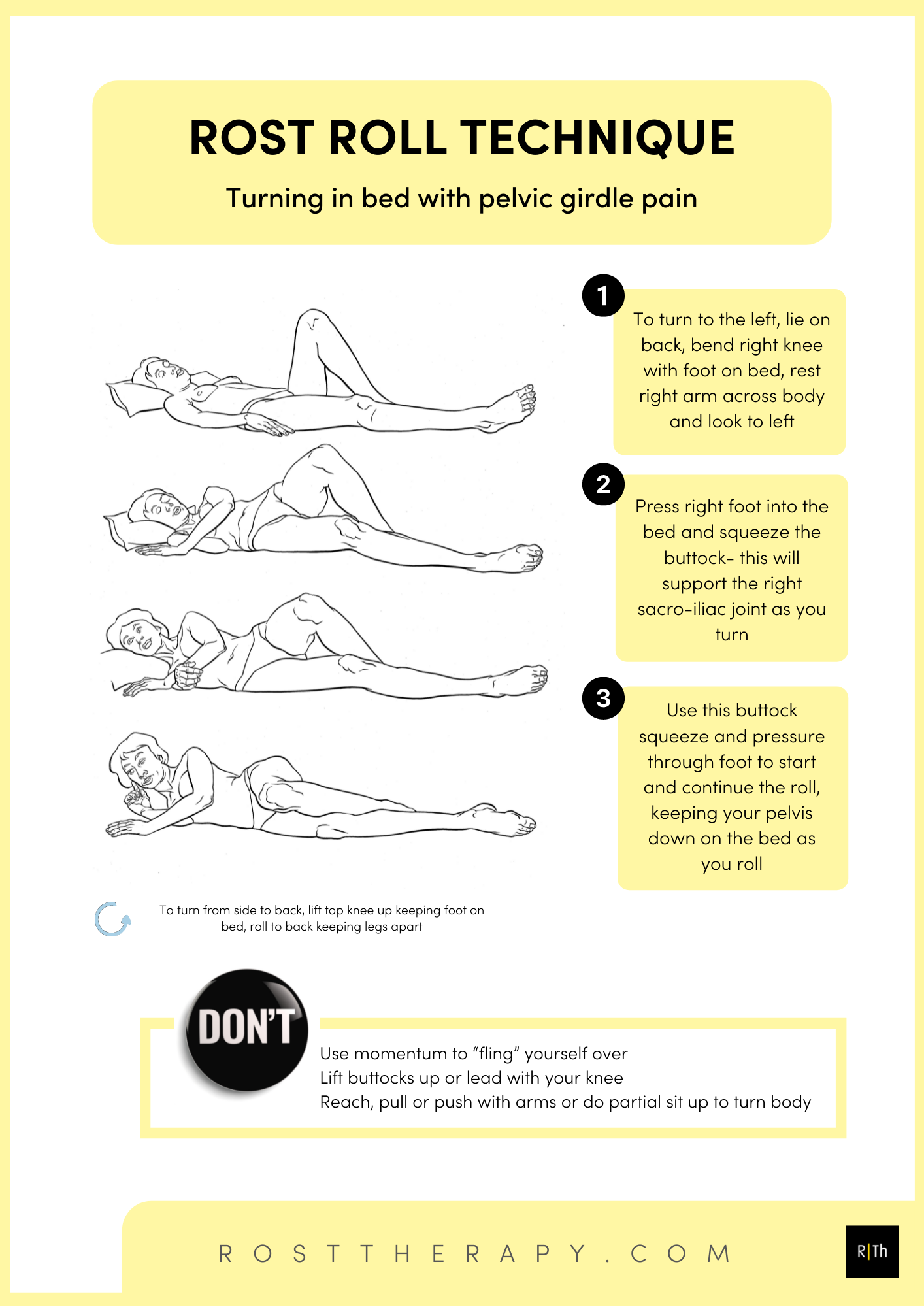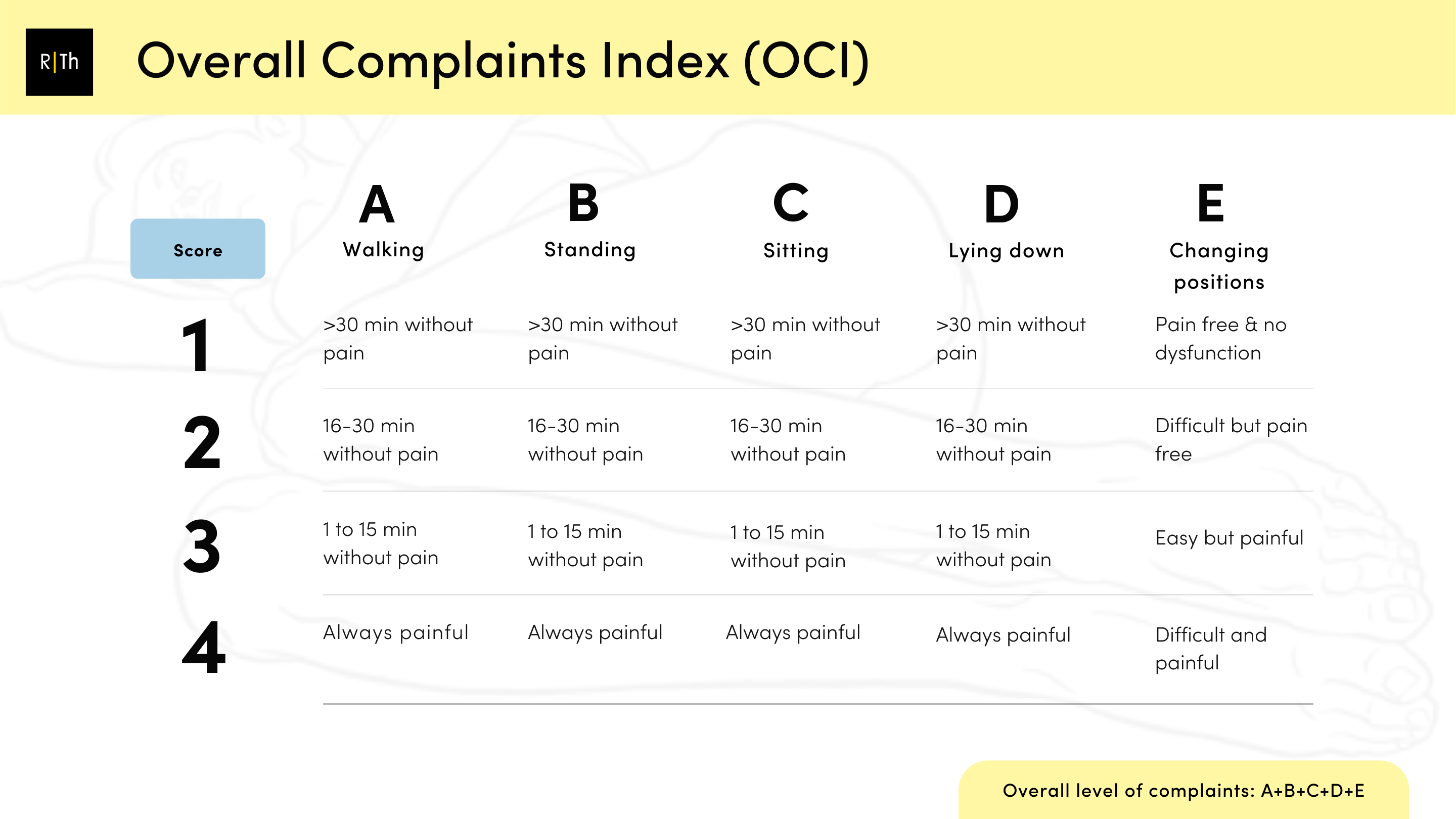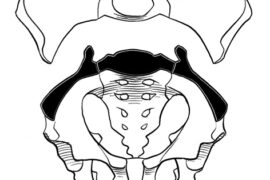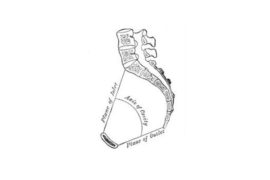Relieving pelvic girdle pain and coccydynia
On the tabs below you will find videos, books, an app and other resources.
 Are you a woman experiencing pelvic girdle pain? Try the exercises of the book and the practical advice on our Rost Moves Mamas app. And if you still suffer too much pain or dysfunction, find help from a certified Rost Therapist for a few treatment sessions.
Are you a woman experiencing pelvic girdle pain? Try the exercises of the book and the practical advice on our Rost Moves Mamas app. And if you still suffer too much pain or dysfunction, find help from a certified Rost Therapist for a few treatment sessions.
Did you fall on your coccyx? Do you have pain tailbone pain when you stand up from a chair? Or do you experience tailbone pain (coccydynia) since you delivered your baby? Find a coccydynia therapist that has been trained with Rost Therapy™. They are listed on on our Find a therapist database.
Patient friendly techniques to relieve pelvic girdle pain
On the videos below you will find the Rost Roll technique (or how to turn in bed when you have pelvic pain) and the symmetry technique, two of many landmarks of Rost Therapy™. These original videos show effective exercises to manage pelvic girdle pain and dysfunction. Over the years the therapy has become refined. In our online and practical courses therapists learn all the details to be able to use these and other techniques successfully with their patients. Nowadays it is certainly possible for most women who are diagnosed with pelvic girdle pain to keep functioning throughout pregnancy with a minimum amount of pain.
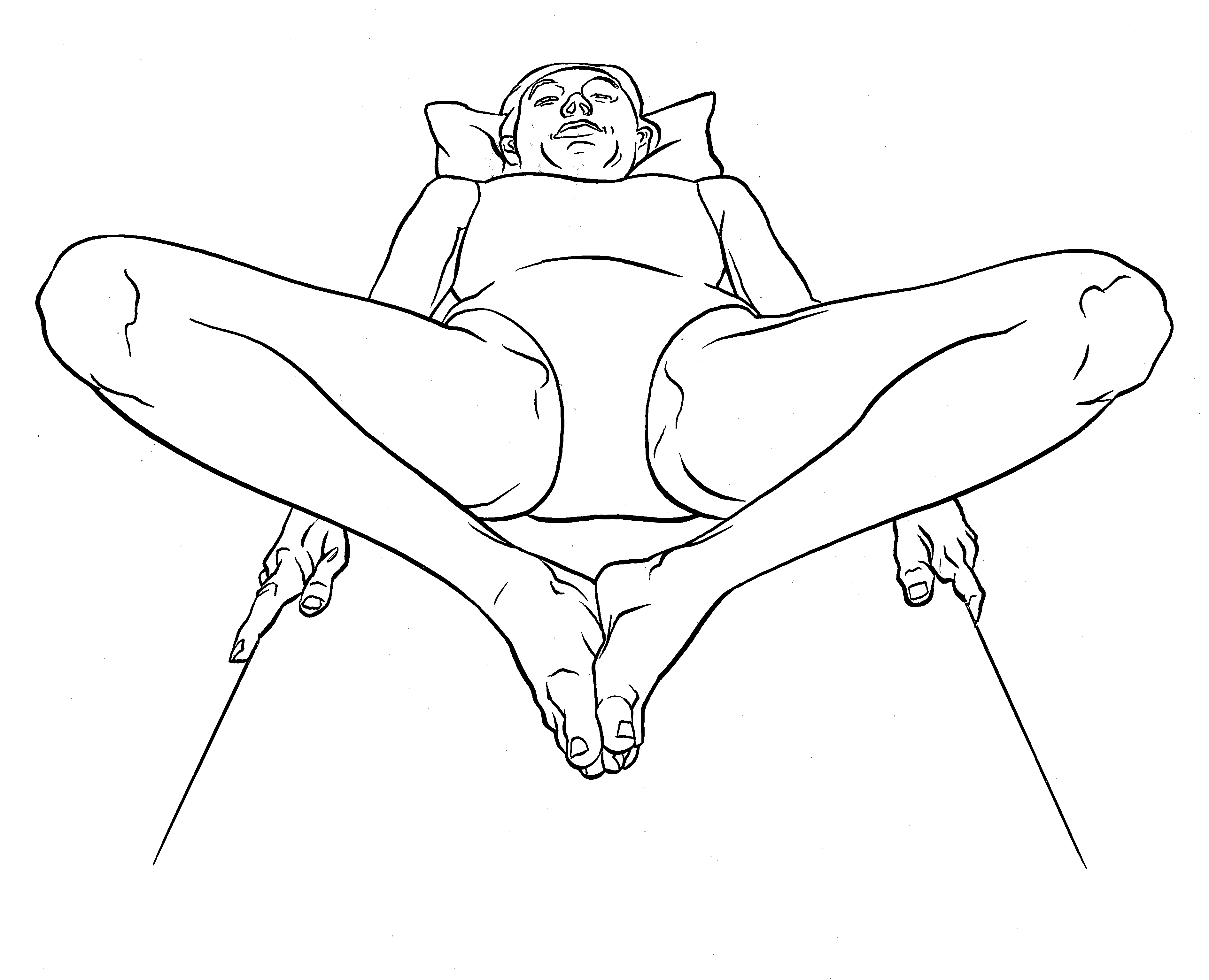
Rost Moves Mamas
This app is the first in a series produced by Rost Therapy. In this app, helpful postures and movements are shown clearly with photographs to help women function more easily in their day to day activities. The information in this app is helpful for pregnant women and their families, therapists, and patients.
We hope this app helps mamas move more easily!
This app is a good addition to Cecile Röst’s book, Relieving Pelvic Pain During and After Pregnancy.
The Rost Moves Mamas app is available for download for Apple IOS and Android!
Books
This is the 3rd Edition and 4th printing of Relieving pelvic pain during and after pregnancy for therapists.
This new edition includes the basic Rost Therapy strategies as well as additional techniques from other treatment programmes. The book covers treatment for PGP patients from the more straight forward cases to the more complex.
Our Rost Therapy DVD for health professionals is enclosed.
Here is a link for the English version www.amazon.com


Here is a handout with instructions on how to do the Rost Roll to turn in bed with pelvic girdle pain. It is a painless technique that can radically change night pain for PGP patients. Feel free to hand it over!
1. Overall Complaints Index (OCI)
By coincidence this scale was made back in 2002. Confronted by the question of Professor Bart W. Koes of the Erasmus University of Rotterdam: ‘It seems you didn’t use a pain measurement scale in the for this research project used assessment form, am I right?’ Oops, that was some awkward moment! Cecile Röst had to do quick thinking: the professor was absolutely right, she was flabbergasted why she (nor her coworkers who had helped in collecting data from over 1500 pregnant and postpartum women, using the standardized assessment form) had not noticed that a VAS or NRS scale was left out. No excuse, she had to figure out another way to measure function at deadline.
There were five questions about daily functioning that had been answered by all the patients. Supported by the professor and her other co-authors, Cecile made up a scale to measure function. And there it was: the birth of the Index for the Overall Severity of Complaints During Daily Activities. The results were published in Spine 2004 Rost et al. Pelvic Pain During Pregnancy. It appeared to be a very useful measurement tool in daily clinic: not only was it easy to use and very quick to fill in, the so called OCI appeared to have prognostic value in the follow-up study, published in Acta Obstet 2006 Rost et al. Prognosis of women with pelvic pain The higher the score (total sum of 5 questions) at physiotherapy intake, the higher the risk of a prolonged recovery after birthgiving.
Conclusion: Don’t wait to go to a Rost Therapist when you are pregnant and experience pelvic girdle pain (a total score of 4 on the OCI is a sign to seek help). The sooner you come, the easier your pregnancy (better function, less pain) and the shorter the period you will have complaints as a mother of your newborn!
2. Overall Complaints Index – Pelvic Girdle Pain (OCI – PGP)
In 2017 a new questionnaire to assess the severity of Pelvic Girdle Pain was made by Cecile Röst: The OCI-PGP. The questionnaire is developed and validated for the Dutch population of women with pregnancy related pelvic girdle pain and has high statistical qualities. The English questionnaire is ready to be used, validation of the English version will come.
You can find all about this Index here:
Development and Validation of an Overall Complaints Index for Pelvic Girdle Pain-abstract




